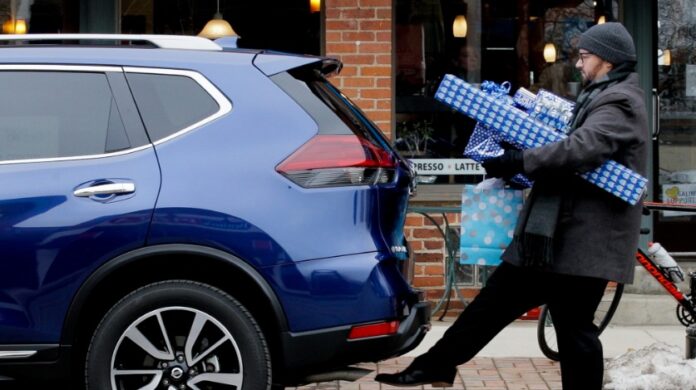A New Jersey woman has filed a lawsuit against Volvo, alleging the company is responsible for a head injury she sustained. The incident occurred when a dog accidentally triggered the vehicle’s automatic trunk sensor.
The event took place in October 2023, but the lawsuit was not filed until October 2025 in a New Jersey court. According to court documents, the plaintiff, Megan Kohr, was injured while standing behind a Volvo vehicle (model unspecified) with her friend Jennifer Henry, who owned the dog.
While Kohr was conversing, the dog unexpectedly ran around and crawled under the car. This action allegedly triggered the motion sensor beneath the rear bumper, part of Volvo’s hands-free trunk opening system featured in models like the XC60, XC90, EX90, and V90 Cross Country.
The electric trunk lid suddenly opened, striking Kohr on the head. She was rushed to the hospital with severe injuries and required prolonged medical treatment. In her lawsuit, Kohr seeks compensation for medical expenses, lost income, and emotional distress, which she claims are “direct consequences of the system’s design flaws.”
Kohr’s legal team argues that Volvo’s hands-free trunk system “lacks necessary safeguards to prevent accidental activation” in similar situations. They also assert that the trunk lid does not automatically stop or reverse when it encounters an obstacle—a safety feature common in many modern electric trunk systems.
The lawsuit further claims that Volvo “failed to adequately warn users about the potential for unintended activation” when motion is detected near the sensor. In addition to Volvo Car USA, Jennifer Henry (the car owner and dog owner) and the driver of the vehicle are also named as co-defendants.
The foot-activated trunk feature, often marketed as “convenient and smart,” allows users to open the rear gate with a simple foot motion under the rear bumper, which is particularly useful when carrying items. However, this incident raises questions about the safety of motion sensor technology, especially in complex environments or when animals or children are nearby.
Volvo has not provided specific comments on the lawsuit but stated that “all of its automatic trunk systems meet international safety standards” and undergo rigorous testing before mass production.
The New Jersey court is currently evaluating whether the accident resulted from a technical flaw in the sensor design, user negligence, or an unforeseeable incident.
Legal experts suggest that if the court determines Volvo’s sensor design is defective, the lawsuit’s impact could extend across the automotive industry. Many other manufacturers, including Ford, BMW, Mercedes-Benz, and Toyota, use similar sensor technology for hands-free trunk systems.
In such a scenario, the legal precedent set by this case could compel manufacturers to review and enhance safety standards for electric trunk systems, including improving motion detection accuracy, obstacle response, and user warnings.
The New Jersey court has not yet set an official trial date. Meanwhile, the story of “Volvo’s automatic trunk and the dog” has sparked intense discussions on social media, raising broader questions about the reliability of technology when even minor movements can lead to unexpected consequences.
TH (Tuoitrethudo)
Illustrative image









































